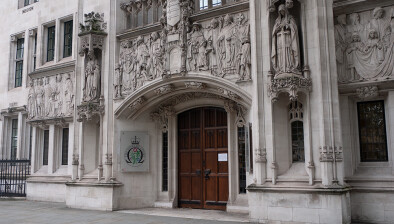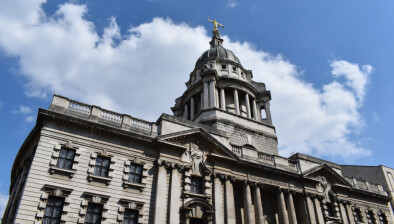High Court: Gerard Hutch fails in attempt to prohibit non-jury trial in Special Criminal Court

The High Court has refused a judicial review application by two accused to prohibit their trial in the Special Criminal Court. The applicants argued that the SCC was a temporary and emergency mechanism but had become a de facto permanent court in the Irish system. As such, it was argued that the continued use of the SCC was unlawful.

About this case:
- Citation:[2022] IEHC 81
- Judgment:
- Court:High Court
- Judge:Mr Justice Anthony Barr
Delivering judgment in the case, Mr Justice Anthony Barr refused to prohibit the applicants’ trial. It was held that there was no temporal limit on the use of the SCC based on the relevant legislation. Further, it was held that the continued existence of the SCC was not amenable to judicial review because the executive had maintained ongoing reviews regarding its necessity.
Background
The applicants, Mr Gerard Hutch and Mr Jonathan Dowdall, were each accused of the murder of David Byrne at the Regency Hotel in February 2016. Both men were due to stand trial in the SCC after the Director of Public Prosecutions certified that the ordinary courts were inadequate to secure the administration of justice and the preservation of public peace in relation to the trial.
The applicants brought judicial review proceedings seeking to challenge the decision to prosecute them in the SCC. The applicants focused on section 35(2) of the Offences Against the State Act 1939, which provided that the government may make a proclamation to establish the SCC.
The applicants claimed that the SCC has been in continuous use for fifty years, with the present iteration of the SCC being based on a proclamation from 1972. It was argued that the SCC had in fact become a de facto permanent court in the Irish legal system and that this was unlawful.
In particular, the applicants relied on the decisions in DPP v. Quilligan & O’Reilly [1986] IR 495 and Kavanagh v. Ireland [1996] 1 IR 321. In these cases, there were comments from the Supreme Court that the SCC provisions in the 1939 Act were emergency provisions. There was also a suggestion that the provisions were temporary. The applicants argued that the original proclamation had been made in 1972 to combat terrorist offending and that it was not permissible for the same iteration of the SCC to try them for organised crime activities.
Essentially, it was argued that the SCC had outlasted the emergency situation in 1972. Further, the applicants noted that witness/jury intimidation in organised crime cases was an ongoing threat and argued that the continued use of the SCC implied that it would remain a permanent feature.
Finally, the applicants submitted that there was an obligation on Dáil Eireann to review the ongoing operation of the SCC under section 35 of the 1939 Act. It was submitted that on review of substance had been undertaken by the Dáil or by the Government.
In response, the State respondents submitted that there was no temporal limit found in the 1939 Act for a proclamation. It was submitted that as long as it was determined that the ordinary courts were inadequate to secure the effective administration of justice, the executive was entitled to keep the SCC in place.
It was also argued that the making of proclamations were political decisions entrusted to the executive and that the court should show deference to those decisions. It was also argued that the State had actually conducted reviews of the SCC, pointing to reviews from 2000.
High Court
It was held that the essential issue in the case was the interpretation of section 35 of the 1939 Act. The court held that there was no temporal limitation on a proclamation, noting that there were no limiting words in the section at all. There was also no suggestion of a sunset clause in the legislation.
Instead, it was held that the wording of section 35 meant that the Oireachtas could establish an SCC on such occasions where the government felt it necessary. It was held that, if there were a temporal limitation to the SCC proclamation, then it would be almost impossible to establish when the SCC moved from being a temporary measure to being a permanent one.
Considering DPP v. Quilligan & O’Reilly and Kavanagh v. Ireland, it was held that both of these dicta were obiter comments. Further, a close reading of the comments did not show that a proclamation could be time limited.
Additionally, the court stated: “The question as to whether the ordinary courts are adequate to secure the effective administration of justice is a purely political question.” It was therefore not a matter for the court to make a judgment on this issue, having regard to judicial deference to executive action.
It was also held that, once a proclamation was made, it covered all scheduled offences stipulated in the Acts and those non-scheduled offences when there was a certificate from the DPP. Accordingly, the backdrop of subversive activity for the 1972 proclamation was not relevant. This was clear from the Quilligan and Kavanagh cases, the court said. As such, as long as the DPP held the view that the case was necessary to be tried in the SCC, she was entitled to use that court.
Finally, the court considered the alleged lack of review and rejected this point as well. There was no basis established by the applicants in the case to warrant interfering with the executive function, the court said. Even if the court was wrong, the evidence from the State clearly showed that there was an ongoing review of the SCC. The court pointed to the 2002 report and to the review by Mr Justice Michael Peart which started in 2021.
Conclusion
The court refused to prohibit the trial of the applicants.










